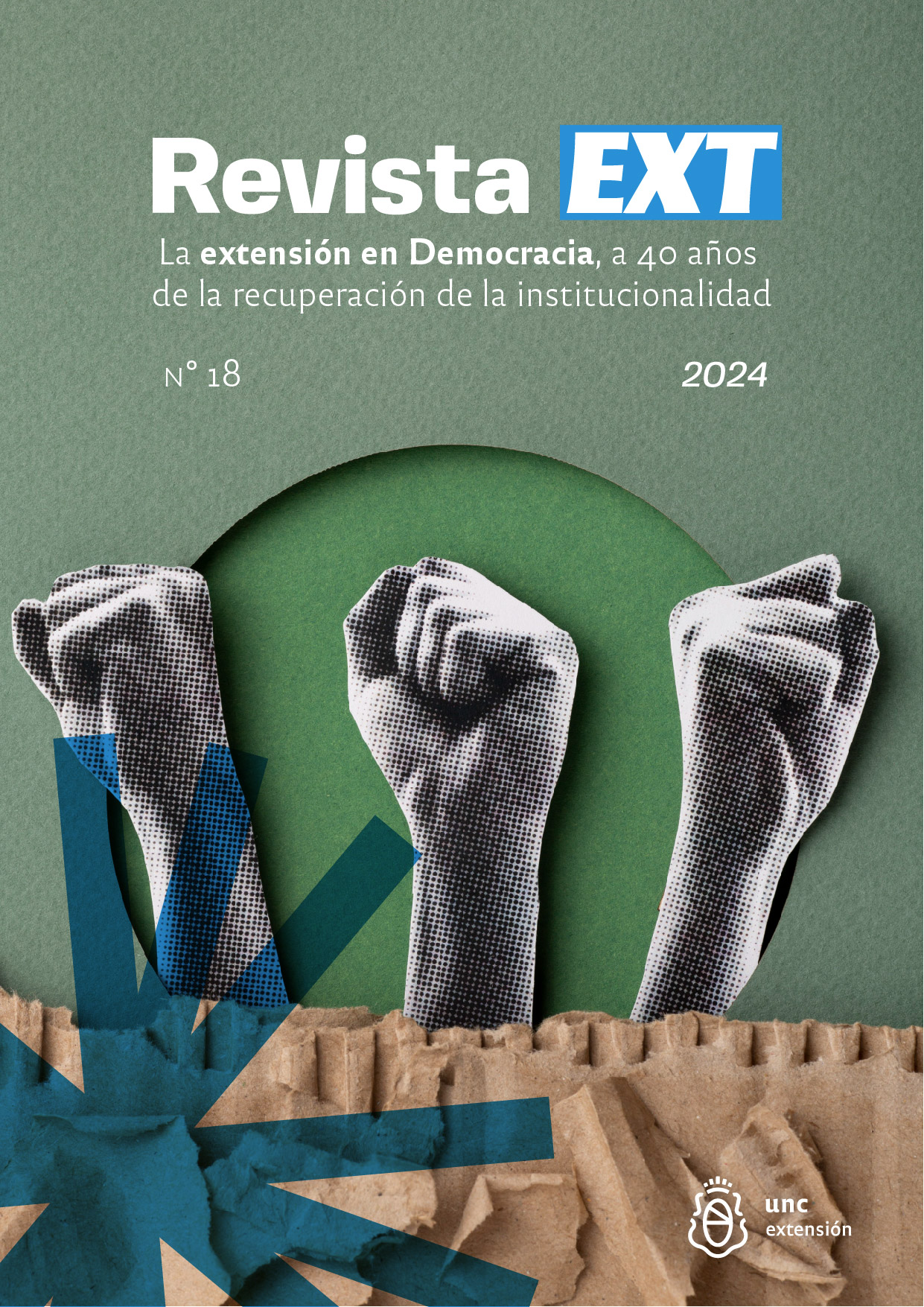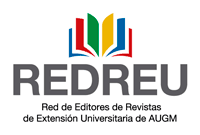Non-binary language in the library: experience of curricularization
Keywords:
outreach curricularization; Contrastive Linguistics and Translation Theory; Alfonsina Storni Popular Library; non-binary languageAbstract
This article describes a first experience of outreach curricularization which we carried out, in 2023, from the Contrastive Linguistics and Translation Theory (LCyTT in Spanish), School of Languages, Córdoba National University, in conjunction with Alfonsina Storni Popular Library, located in the city of Cordoba, Argentina.
In the library’s venue and in a virtual classroom that we created specifically, we generated the workshop called Palabras sin barreras. Explorando el lenguaje no binario en la biblioteca (Words without Borders. Exploring non-binary language in the library), with which we encouraged theoretically-based exchanges, from a cognitivist and sociolinguistic perspective, about non-binary language, manifested, for example, through the form "e" in words such as "diputades".
The different activities we proposed to the attendees promoted a very enriching back and forth, not only for those who were members of the public, but mostly for the students and the professor of LCyTT.
In this paper, we focus precisely on the positive assessment that our outreach workshop gave way to in the Chair as a whole, and we propose some reflections with a view to giving it continuity in this new academic year.
Downloads
References
Asociación de Academias de la Lengua y Real Academia Española (2010). Nueva gramática de la lengua española. Manual. Espasa Libros S.L.
Borzi, C. (2002). Gramática cognitiva prototípica y normativa. Anales del Instituto de Lingüística (UNdeCuyo), Vol. XXII y XXIII, 11-20.
Borzi, C. (2008). El uso de ya que y como en el habla culta de la ciudad de Buenos Aires. Oralia, 11, 279-305.
Bruno, D. P. (2016). Curricularizar la extensión para integrar y territorializar la práctica universitaria. Cuadernos de H Ideas, vol. 10, nº 10, http://perio.unlp.edu.ar/ojs/index.php/cps/index
Camilloni, A. R. (2020). La integración de la participación de los estudiantes en proyectos de extensión como componente del currículo universitario. InterCambios. Dilemas y transiciones de la Educación Superior, vol.7 no.1.
Castañeda Castro, A. y Alonso Raya, R. (2009). La percepción de la gramática. Aportaciones de la lingüística cognitiva y la pragmática a la enseñanza de español/LE. MarcoELE. Revista de didáctica ELE, núm. 8.
Davies, B. y Harré, R. (1999). Posicionamiento: la producción discursiva de la identidad. Sociológica, vol. 14, núm. 39, 215-239.
Eckert, P. y McConnell-Ginet, S. (2003). Language and Gender. Cambridge University Press.
Funes, M. S., Poggio, A. y Romero, M. C. (2018). Nuevas conceptualizaciones de género en el español de la Argentina: un análisis cognitivo-prototípico. RASAL Lingüística, N.º 1, 7-39.
Hopper, P. (1988). Emergent Grammar and the A Priori Grammar Postulate. En D. Tannen (Ed.), Linguistics in Context: Connective Observation and Understanding (Lectures from the 1985 LSA/TESOL and NEH Institutes) (pp. 117-134). Ablex Publishing Corporation.
Ibarretxe Antuñano, I. (2013). La lingüística cognitiva y su lugar en la historia de la lingüística. Revista española de lingüística aplicada, Vol. 26, 245-266.
Kolb, A. y Kolb, D. (2003). Learning Styles and Learning Spaces: Enhancing Experiential Learning in Higher Education. Academy of Management Learning and Education, 4 (2), 193-212.
Lakoff, G., y Johnson, M. (1981). Metaphors we live by. University of Chicago Press.
Langacker, R. W. (2016). Working Towards a Synthesis. Cognitive Linguistics, 27 (4), 465-477.
Lippi-Green, R. (2012). The linguistic facts of life. En English with an Accent. Language, ideology, and discrimination in the United States (2.° ed., pp. 7-40). Routledge.
Downloads
Published
Issue
Section
License
Copyright (c) 2024 Secretaría de Extensión Universitaria

This work is licensed under a Creative Commons Attribution-NonCommercial-ShareAlike 4.0 International License.
Aquellos autores/as que tengan publicaciones con esta revista, aceptan los términos siguientes:
- Los autores/as conservarán sus derechos de autor y garantizarán a la revista el derecho de primera publicación de su obra, el cuál estará simultáneamente sujeto a la Licencia de reconocimiento de Creative Commons que permite a terceros compartir la obra siempre que se indique su autor y su primera publicación esta revista.
- Los autores/as podrán adoptar otros acuerdos de licencia no exclusiva de distribución de la versión de la obra publicada (p. ej.: depositarla en un archivo telemático institucional o publicarla en un volumen monográfico) siempre que se indique la publicación inicial en esta revista.
- Se permite y recomienda a los autores/as difundir su obra a través de Internet (p. ej.: en archivos telemáticos institucionales o en su página web) después del proceso de publicación, lo cual puede producir intercambios interesantes y aumentar las citas de la obra publicada. (Véase El efecto del acceso abierto).





